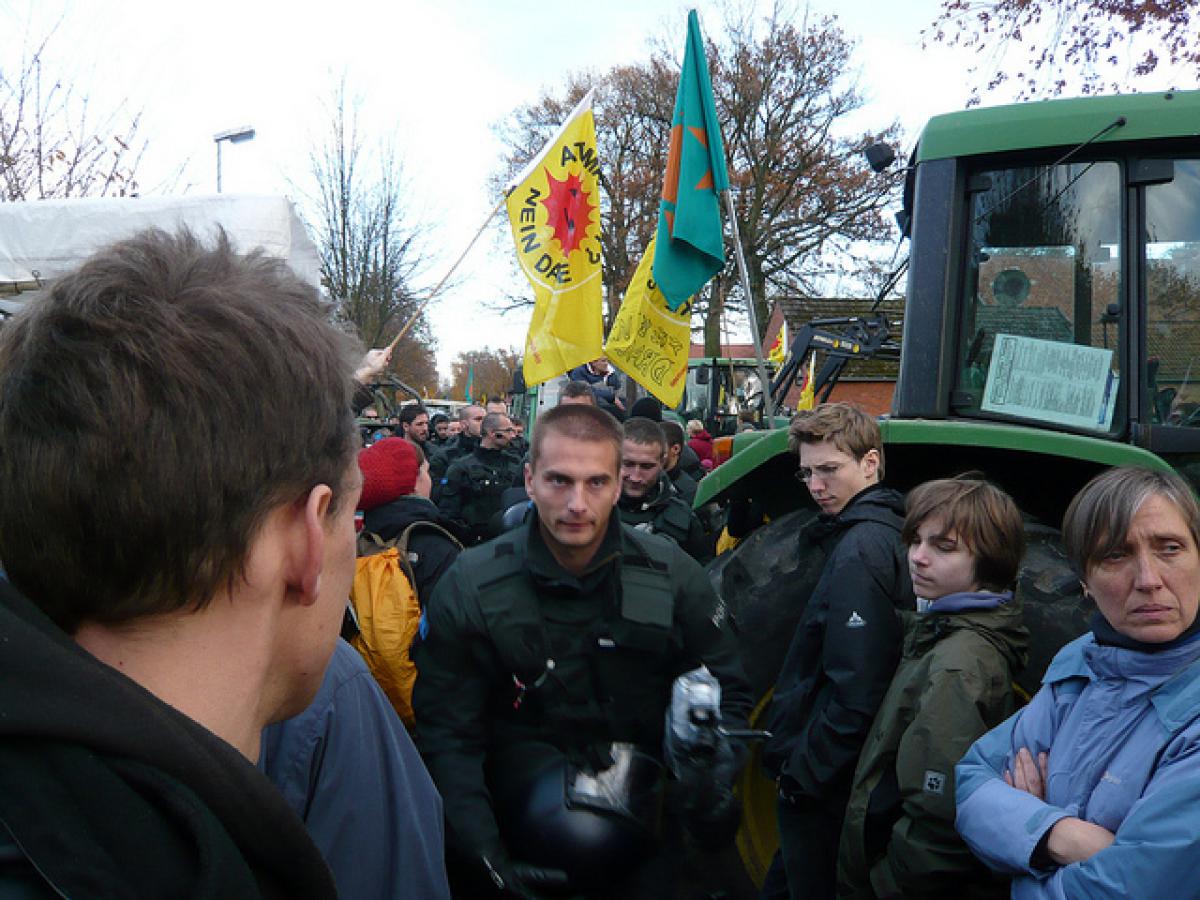Phasing out nuclear energy in Germany: The cost, the obstacles, the unanswered questions
Police and demonstrators facing each other in Gorleben, formerly Germany's designated nuclear waste storage facility (photo: GuentherHH, flickr.com).
In 2011, the nuclear desaster in Fukushima triggered the momentous decision by Angela Merkel's government to finally phase-out nuclear energy in Germany. This decision brought an end to a highly divisive societal conflict: As a consequence, Germany's "energiewende" (phasing out nuclear plus building a virtually carbon-free energy system) became a national project.
Yet, understanding the German energy transition is not possible without understanding the dynamics of the phase-out. The media workshop will thus take stock of what Germany has achieved so far in switching off its fleet of nuclear power plants - and of the unsolved financial and waste management problems that remain.
Specifically, the media workshop will look at the following questions:
- The cost: What are the financial implications of shutting down nuclear power plants? Who is paying for the clean-up?
- The waste issue: Where, when and at what cost will a final nuclear waste deposit be built?
- The technical challenge: How difficult is it to decommission more than a dozen nuclear reactors? And could the dismantling of nuclear facilities be a new German export industry?
If you have any questions concerning the workshop please do not hesitate to contact us (see contact box at the right).
If you would like to participate, please sign in via our registration button and form.

